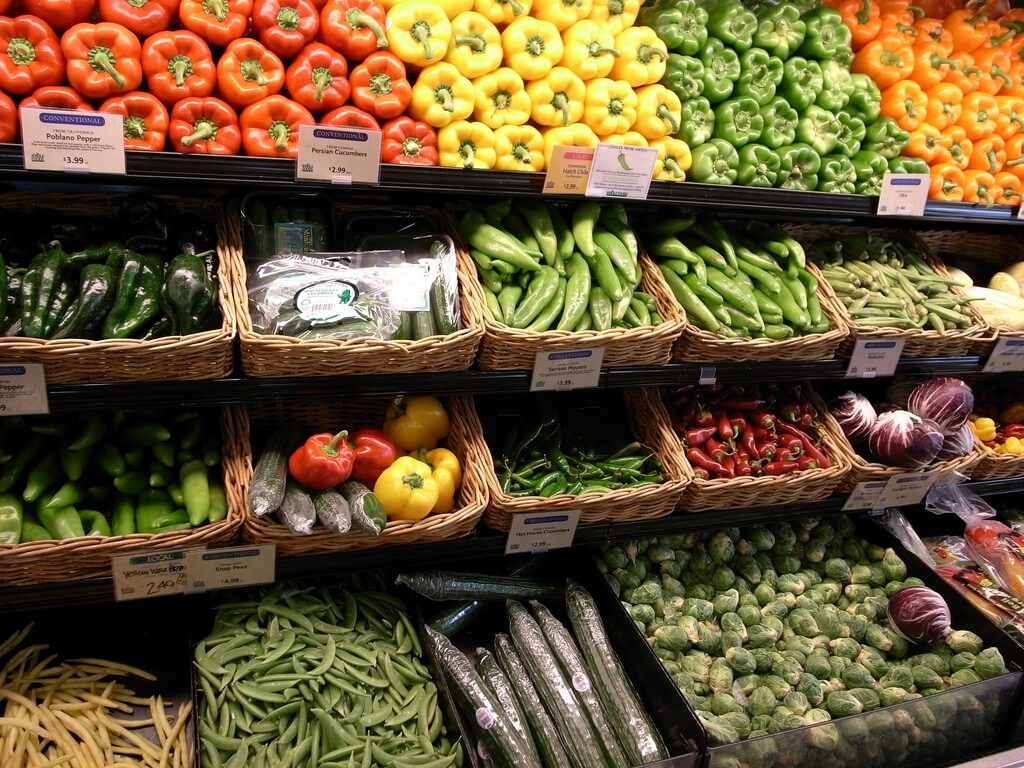Wellness Wednesday: 10 Foods for Faster Swimming

Swimming fast requires intense physical and mental exertion, which is all the more reason for competitive swimmers to focus on what goes into their bodies. It’s no wonder then that providing your body with the proper nutrients it needs to perform, recover, and reset comes with a hefty reward.
What the body needs
There are a multitude of healthy food options for swimmers but timing is essential to receiving benefits. While swimmers require foods rich in complete proteins, it is difficult to digest these foods during a workout. So while high protein foods are a valuable asset, eating lots of protein during workout could be disastrous. The Academy of Nutrition and Dietetics warns that consuming foods that are difficult to digest or even foods in excess will hurt swim performance on race day or during training. To help you decipher when to best incorporate these foods into your diet, use the following guidelines. Ultimately, which dietary approach works best for you will require some individual testing and varies from person to person.
Before swimming/competition: Try to eat a snack or meal high in complex carbohydrates with some easily digestible protein. Example: a piece of peanut butter toast.
During swimming/competition: Swimmers should eat easily digestible foods that contain primarily carbohydrates. Examples: apples, bananas, raisins, power bars and pretzels.
After swimming/competition: Protein is essential for proper muscle recovery and should be combined with complex carbohydrates, healthy fats, and a variety of vitamins and minerals. Example: Spaghetti and meatballs with a side salad.
10 Foods to Incorporate into Your Diet
Nuts and Seeds: These foods are full of healthy fats, fiber, protein, magnesium and vitamin E. Try using them to top cereal, yogurt, or just grab a handful. If you’re not allergic pecans and walnuts are also high in a diverse range of vitamins and acids that promote balanced moods and high energy levels.
Beans: Full of fiber, protein, iron, zinc and magnesium, beans are a hearty addition to a wide variety of meals. Roast them for a crunchy snack, mix into a burrito or salad, or throw them into a pasta dish.
Berries: Cranberries, blueberries, raspberries, blackberries and strawberries are all foods packed full of antioxidants. Try mixing them in your smoothie for a burst of flavor or eat them plain for an equally tasty treat.
Unsweetened dark chocolate: Dark chocolate, when consumed in moderation, has exceptional antioxidant powers without the added sugar.
Low-fat yogurt: Not only is it a good source of calcium, vitamin D, potassium and protein, it also provides long lasting energy and boosts muscle recovery. If you want even more protein, look into the Greek varieties.
Milk or soymilk: Dairy is a natural source of calcium, potassium, protein and vitamin D. If you’re allergic or prefer soymilk, buy versions fortified with calcium and vitamin D. Either option is a great post-workout recovery drink.
Dark-green leafy vegetables: Veggies like kale, spinach and collard greens are high in iron and calcium. To maximize the absorption of iron from the vegetables, pair them with foods high in vitamin C, or serve with meat.
Orange fruits and vegetables: These foods are loaded with vitamins C, E, A, and potassium. Your immune system will thank you!
Russet and sweet potatoes: Contrary to popular preconceptions, potatoes can be a healthy part of a balanced diet. Russet potatoes are antioxidant-rich while sweet potatoes are high in beta carotene, which helps promote endurance. Just don’t go nuts with the butter and sour cream.
Apples: An apple a day may actually keep the doctor away. Regular apple consumption has been linked to increased fighting against free radicals. These unstable molecules seek to bond with other molecules to increase their stability. When free radicals bond to body tissues, they speed up the aging process and can cause long-term health complications. Free radicals have even been linked to cancer and some autoimmune diseases. Antioxidants help prevent free radicals from bonding.
All commentaries are the opinion of the author and do not necessarily reflect the views of Swimming World Magazine nor its staff.




Sounds to me like good all round meals for everyone to be healthy.
Cheyenne?
Let’s do it
Ok xx
Sunita Singh
omg arnelle tysm
finally reading this now but you should be the fastest swimmer in the workd
apples and sweet potatoes are both on the list!!
Nolan Pelger
Neil Wible
Joey Girdler
Kaitlyn Miller
Andrew B Marsh?
Cody Cole
Anijah Bell
Ok I will start eating right
Angela
Calvin Schaanick
Jan Karel Petrič
Jesse Tatakis
Jacqueline Samir
Lucy Burchell
All looks great but can I ask why low fat yogurt??
Nicola Taylor haha
Julia Shuford
Be aware that diet and food are not a reliable source of vitamin D. Unfortunately one simply cannot consume enough vitamin D containing food to meet evolutionary requirements.
Supplementing 5-10,000 units of D3 daily requires a pill.
Period.
For those deficient, below a blood level of 50 ng/ml, supplementing D3 will improve performance and endurance.
Get a 25 OH D blood test and view Grassroots Health website for comprehensive knowledge regarding vitamin D deficiency crisis.
In terms of overall health NOTHING matters more than correcting chronic vitamin D deficiency.
Yeah…it’s that important.
Gema Fandila Bunce
Great tips for healthy eating and living. Love this.
Nicole Sullivan Rachel Sullivan
Isabella castelijns
Erik Josefson Viiking Josefson Philip Josefson!!
Annis Andersson Josefson I dont swim
Hjalmar Löfvenborg
Food high in iron are also good for swimmers
https://www.restaurantji.com/what-foods-are-high-in-iron/
Gary McManus just maybe not right before a swim ?
Sarah Lizalde
Tamer Ibrahim
Kayla Newman
NIce
I don’t see meat or fish. It ‘s not that I disagree. But do you promote a vegetarian diet? And have you read “Faith, Love and Seaweed”?
i like apples
I kind of like passion fruit
Love the article and writing as well as the advice/tips. Tested it-really does make for faster swimming. But please consider allergies maybe? Thanks!